Lquin Levofloxacin Oral tablets 500mg Cipla
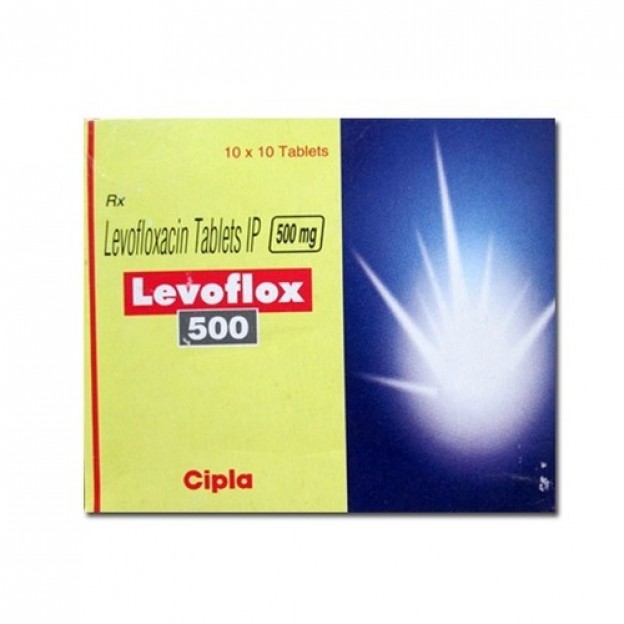
- Stock: In Stock
- Brand: Cipla
- Reward Points: 2
- Model: Anabol1098
- Best prices on the web
- Highest quality products
- Guaranteed delivery
Generic Levaquin (Levoflox Tablets) - Product Information
Price per 1 tablet
Levofloxacin tablets (Generic Levaquin) are used for the treatment of adults 18 years of age and above with mild, moderate and severe infections caused by susceptible strains of the designated microorganisms. The indications treated include Nosocomial Pneumonia, Community-Acquired Pneumonia, Acute Bacterial Sinusitis, Acute Bacterial Exacerbation of Chronic Bronchitis, Complicated Skin and Skin Structure Infections, Uncomplicated Skin and Skin Structure Infections, Chronic Bacterial Prostatitis, Complicated Urinary Tract Infections, Acute Pyelonephritis, Uncomplicated Urinary Tract Infections, Inhalational Anthrax (Post-Exposure) and Plague.
Inorder to reduce the development of drug-resistant bacteria and maintain the effectiveness of Levofloxacin and other antibacterial drugs, Levofloxacin tablets should be used only to treat or prevent infections that are proven or strongly suspected to be caused by susceptible bacteria.
Levoflox tablets are manufactured by Cipla Ltd. in the strengths of 250 mg, 500 mg and 750 mg .
Name of the Drug
We supply original Levoflox tablets manufactured by Cipla Ltd..
Manufacturer of Levoflox Tablets
Cipla Ltd.
Website: cipla.com
Active Ingredient present in Levoflox Tablets
The active ingredient present in Levoflox tablets is Levofloxacin. Each film-coated Levoflox tablet contains Levofloxacin Hemihydrate, IP, equivalent to 250 mg, 500 mg or 750 mg of Levofloxacin.
Uses of Generic Levaquin (Levoflox by Cipla)
Levofloxacin is a Fluoroquinolone antibiotic medicine used in adults, 18 years or older, to treat certain infections caused by bacteria. Levofloxacin has been approved to lessen the chance of getting anthrax disease or worsening of the disease after you are exposed to the anthrax bacteria germ.
We supply Levoflox by Cipla which is also known as Generic Levaquin or Generic Levofloxacin. The active ingredient is Levofloxacin and it comes in strenghts of 250 mg, 500 mg and 750 mg.
Levofloxacin Dosage
The dosage of Levofloxacin tablets (Levoflox) for various indications is given below: Nosocomial Pneumonia:
The dosage is 750 mg a day for 7-14 days.
Community Acquired Pneumonia:
The dosage is 500 mg a day for 7-14 days.
Community Acquired Pneumonia:
The dosage is 750 mg a day for 5 days.
Acute Bacterial Sinusitis :
The dosage is 750 mg a day for 5 days or 500 mg a day for 10-14 days.
Acute Bacterial Exacerbation of Chronic Bronchitis :
The dosage is 500 mg a day for 7 days.
Complicated Skin and Skin Structure Infections (SSSI):
The dosage is 750 mg a day for 7-14 days.
Uncomplicated SSSI:
The dosage is 500 mg a day for 7-10 days.
Chronic Bacterial Prostatitis :
The dosage is 500 mg a day for 28 days.
Complicated Urinary Tract Infection or Acute Pyelonephritis:
The dosage is 750 mg a day for 5 days.
Complicated Urinary Tract Infection or Acute Pyelonephritis:
The dosage is 250 mg a day for 10 days.
Uncomplicated Urinary Tract Infection:
The dosage is 250 mg a day for 3 days.
Inhalational Anthrax (Post-Exposure):
The dosage for Adults and Pediatric Patients more than 50 kg and 6 months of age or more is 500 mg daily for 60 days. In case of Pediatric Patients 6 months of age or more and weighing less than 50 kg the dosage is 8 mg/kg twice a day subject to the condidition that the dose should not exceed 250 mg per dose for 60 days.
How to Use Levofloxacin Tablets (Levoflox)
Take Levoflox (Generic Levaquin) exactly as prescribed by your healthcare provider at about the same time each day. Drink plenty of fluids while taking Levoflox (Generic Levofloxacin tablets); it can be taken with or without food.
If you miss a dose of Levoflox (Generic Levaquin), take it as soon as you remember. Do not take more than one dose in one day. Do not skip any doses, or stop taking this medicine even if you begin to feel better, until you finish your prescribed treatment, unless:
• you have tendon effects
• you have a serious allergic reaction
• your healthcare provider tells you to stop
This will help make sure that all of the bacteria are killed and lower the chance that the bacteria will become resistant to this medicine. If this happens, Levoflox (Generic Levofloxacin) and other antibiotic medicines may not work in the future.
Do not stop taking Levoflox (Generic Levaquin) without talking with your healthcare provider. If you stop taking this medicine too soon, it may not prevent you from getting the anthrax disease. If you take too much, call your healthcare provider or get medical help immediately.
Generic Levaquin (Levoflox Tablets) - Contraindcations
Generic Levaquin (Levoflox tablets) is contraindicated in patients with a known hypersensitivity to Levofloxacin, other quinolones or to any inactive ingredient present in Levoflox tablets. Levofloxacin is contraindicated in patients with epilepsy or a history of tendon disorders related to Fluoroquinolones administration. This medicine is also contrindicted in children or growing adolescents as well as during pregnancy or breastfeeding.
Levofloxacin Side effects
The most common side effects of Levofloxacin tablets with an incidence rate of 3% or more were nausea, headache, diarrhea, insomnia, constipation and dizzines.
The other common side effects of Levoflox (Generic Levaquin) include:
• Sensitivity to sunlight (photosensitivity)
Levofloxacin tablets can cause side effects that may be serious or even cause death. Serious side effects of this medicine include:
Liver damage (hepatotoxicity)
Liver damage can happen in people who take this medicine. Call your healthcare provider right away if you have unexplained symptoms such as:
• nausea or vomiting
• stomach pain
• fever
• weakness
• abdominal pain or tenderness
• itching
• unusual tiredness
• loss of appetite
• light colored bowel movements
• dark colored urine or yellowing of your skin or the whites of your eyes
Central Nervous System Effects
Seizures have been reported in people who take fluoroquinolone antibiotics including this medicine. Tell your healthcare provider if you have a history of seizures. Ask your healthcare provider whether taking this medicine will change your risk of having a seizure.
Central Nervous System (CNS)
Side effects may happen as soon as after taking the first dose of this medicine. Talk to your healthcare provider right away if you get any of these side effects, or other changes in mood or behavior:
• seizures
• hear voices, see things, or sense things that are not there (hallucinations)
• feel restless
• tremors
• feel anxious or nervous
• confusion
• depression
• trouble sleeping
• nightmares
• feel lightheaded
• feel more suspicious (paranoia)
• suicidal thoughts or acts
Serious allergic reactions
Allergic reactions can happen in people taking fluoroquinolones, including this medicine, even after only one dose. Stop taking this medicine and get emergency medical help right away if you get any of the following symptoms of a severe allergic reaction:
• hives
• trouble breathing or swallowing
• swelling of the lips, tongue, face
• throat tightness, hoarseness
• rapid heartbeat
• faint
Changes in blood sugar [low blood sugar (hypoglycemia) and high blood sugar (hyperglycemia)
People who take this medicine and other fluoroquinolone medicines with oral anti-diabetes medicines or with insulin can get low blood sugar (hypoglycemia) and high blood sugar (hyperglycemia). Follow your healthcare provider’s instructions for how often to check your blood sugar. If you have diabetes and you get low blood sugar while taking this medicine, stop taking this medicine and call your healthcare provider right away. Your antibiotic medicine may need to be changed.
Joint problems
Increased chance of problems with joints and tissues around joints in children. Tell your child’s healthcare provider if your child has any joint problems during or after treatment with this medicine.
Yellowing of the skin or eyes
Stop taking this medicine and tell your healthcare provider right away if you get yellowing of your skin or white part of your eyes, or if you have dark urine. These can be signs of a serious reaction to this medicine (a liver problem).
Skin rash
Skin rash may happen in people taking this medicine, even after only one dose. Stop taking this medicine at the first sign of a skin rash and call your healthcare provider. Skin rash may be a sign of a more serious reaction to this medicine.
Intestine infection (Pseudomembranous colitis)
Pseudomembranous colitis can happen with most antibiotics, including this medicine. Call your healthcare provider right away if you get watery diarrhea, diarrhea that does not go away, or bloody stools. You may have stomach cramps and a fever. Pseudomembranous colitis can happen 2 or more months after you have finished your antibiotic.
Changes in sensation and possible nerve damage (Peripheral Neuropathy)
Damage to the nerves in arms, hands, legs, or feet can happen in people taking fluoroquinolones, including this medicine. Talk with your healthcare provider right away if you get any of the following symptoms of peripheral neuropathy in your arms, hands, legs, or feet:
• pain
• burning
• tingling
• numbness
• weakness
This medicine may need to be stopped to prevent permanent nerve damage.
Serious heart rhythm changes (QT prolongation and torsades de pointes)
Tell your healthcare provider right away if you have a change in your heart beat (a fast or irregular heartbeat), or if you faint. This medicine may cause a rare heart problem known as prolongation of the QT interval. This condition can cause an abnormal heartbeat and can be very dangerous. The chances of this happening are higher in people:
• who are elderly
• with a family history of prolonged QT interval
• with low blood potassium (hypokalemia)
• who take certain medicines to control heart rhythm (antiarrhythmics)
In children 6 months and older who take this medicine to prevent anthrax disease, vomiting is also common.
This medicine may cause false-positive urine screening results for opiates when testing is done with some commercially available kits. A positive result should be confirmed using a more specific test.
These are not all the possible side effects of this medicine. Tell your healthcare provider about any side effect that bothers you or that does not go away.
Warnings & Precautions When Using Levoflox Tablets (Generic Levaquin)
Levoflox (Generic Levaquin) can make you feel dizzy and lightheaded. Do not drive, operate machinery, or do other activities that require mental alertness or coordination until you know how this medicine affects you.
Avoid sunlamps, tanning beds, and try to limit your time in the sun. This medicine can make your skin sensitive to the sun (photosensitivity) and the light from sunlamps and tanning beds. You could get severe sunburn, blisters or swelling of your skin. If you get any of these symptoms while taking this medicine call your healthcare provider right away. You should use a sunscreen and wear a hat and clothes that cover your skin if you have to be in sunlight
Do not take this medicine if you have ever had a severe allergic reaction to an antibiotic known as a fluoroquinolone or if you are allergic to Levofloxacin or any of the ingredients in Levoflox tablets. Ask your healthcare provider if you are not sure. Tell your healthcare provider about all your medical conditions, including if you:
• have tendon problems
• have central nervous system problems (such as epilepsy)
• have nerve problems
• have or anyone in your family has an irregular heartbeat, especially a condition called “QT prolongation”
• have low blood potassium (hypokalemia)
• have a history of seizures
• have bone and joint problems
• have kidney problems. You may need a lower dose of this medicine if your kidneys do not work well.
• have liver problems
• have rheumatoid arthritis (RA) or other history of joint problems
It is not known if Levoflox (Generic Levaquin Levofloxacin) will harm your unborn child. This medicine is thought to pass into breast milk.
Tell your healthcare provider about all the medicines you take, including prescription and non-prescription medicines, vitamins, herbal and dietary supplements. This medicine and other medicines can affect each other causing side effects. Especially tell your healthcare provider if you take:
• an oral anti-diabetes medicine or insulin
• a blood thinner (Warfarin®, Coumadin®, Jantoven®)
• a medicine to control your heart rate or rhythm (antiarrhythmics)
• an anti-psychotic medicine
• a tricyclic antidepressant
• a water pill (diuretic)
• a steroid medicine; Corticosteroids taken by mouth or by injection may increase the chance of tendon injury.
• theophylline (Theo-24®, Elixophyllin®, Theochron®, Uniphyl®, Theolair®)
Many common medicines for pain relief are NSAIDs (Non-Steroidal Anti-Inflammatory Drug). Taking an NSAID while you take this medicine or other fluoroquinolones may increase your risk of central nervous system effects and seizures.
Certain medicines may keep this medicine from working correctly. Take this medicine Tablets or Oral Solution either 2 hours before or 2 hours after taking these products:
• an antacid, multivitamin, or other product that has magnesium, aluminum, iron, or zinc.
• sucralfate (Carafate®)
• didanosine (Videx®,Videx ® EC)
Ask your healthcare provider if you are not sure if any of your medicines are listed above.
Know the medicines you take. Keep a list of your medicines and show it to your healthcare provider when you get a new medicine.
Levofloxacin During Pregnancy
Levofloxacin has been classified by the US FDA as Pregnancy Category C. Levofloxacin was not teratogenic in rats with oral doses as high as 810 mg/kg/day which corresponds to 9.4 times the highest recommended human dose based upon relative body surface area. There are, however, no adequate and well-controlled studies conducted in pregnant women. Levofloxacin should be used during pregnancy only if the potential benefit justifies the potential risk to the fetus.
Levofloxacin During Breastfeeding
Based on data on other Fluoroquinolones and very limited data on Generic Levaquin, it can be assumed that Levofloxacin will be excreted in human milk. Because of the potential for serious side effects from Levofloxacin in nursing infants, a decision should be made whether to discontinue nursing or to discontinue Levofloxacin tablets, taking into account the importance of the medicine to the mother. You and your doctor should decide whether you will take this medicine or continue breastfeeding.
Add Review
Add


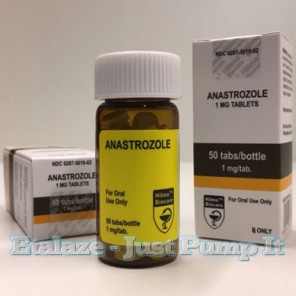
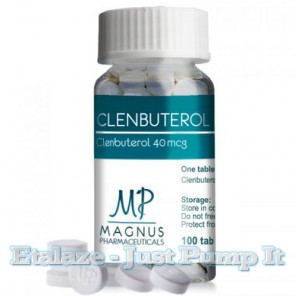

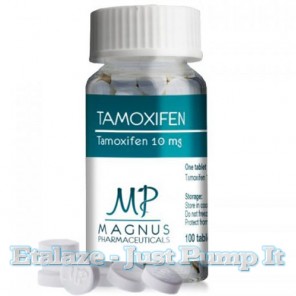
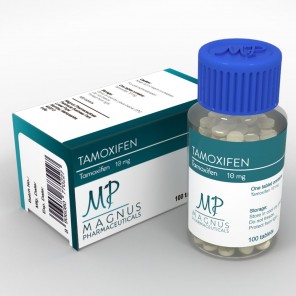
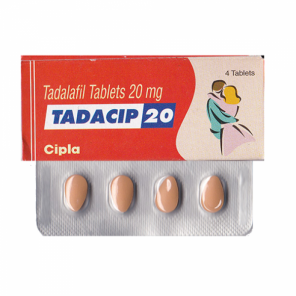
-296x296w.jpg)